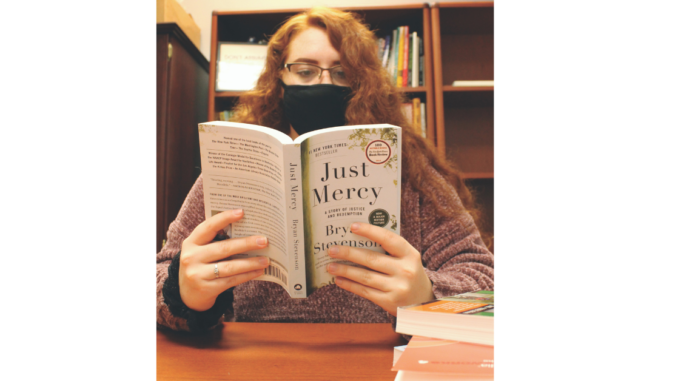
By MELISSA SANDOVAL
Staff Reporter
For many, books are a way to learn and understand the things that aren’t exactly easily talked about, hard topics such as anti-racism, but what precisely belongs on an anti-racist reading list?
“For a book to be anti-racist, it needs to project a voice that we don’t often hear in our society. It needs to give the perspective of the other side of a conversation,” Courtney Milleson, a speech professor, said. “We always have the adage that there is one side of the story and then another side but then there’s the middle.”
Milleson said that she could argue that there’s an underneath that we as a culture have not even begun to explore. “I think more importantly than just a specific book is just having resources to learn new ideas of what it means to be a racist and what it means to be an anti-racist,” said Milleson.
Emily Gilbert, the AC librarian, said that it’s difficult to offer ways to change society, but any book that offers a map to change – not only for the people who want change but also for people who don’t want it – definitely belongs on an anti-racist reading list.
“ Sometimes it’s difficult to challenge the views of society if you don’t experience that yourself because you don’t always know, although sometimes it’s very clear that people are treated differently or poorly or brutally,” said Gilbert. “I think that the new literature on how to recognize that the system is broken is really useful for that.”
The AC library has several books on anti-racism, some having been recently purchased over the summer in order to expand their collection for students who are interested in learning more about the topic.
Ericka Rodriguez, a horticulture major, said she is glad the books are available at AC. “Reading books focused on anti-racism would show how I can change and be better to help other people of color so they wouldn’t have to go through it alone, and so we could slowly but surely educate everyone and eradicate racism for good,” she said.
Milleson agreed that reading is a way to fight racism. Through books, one can learn how to view the world through a different perspective, she said.
“We’ve got to find a balance between my generation who’s watching and the third generation who have begun taking action,” said Milleson. “Between those two we have to come back and say, ‘OK, tell me your side of the story.’ I think that that’s the most powerful thing we can do, just listening to people. Not listening to respond, but listening to hear.”

Leave a Reply